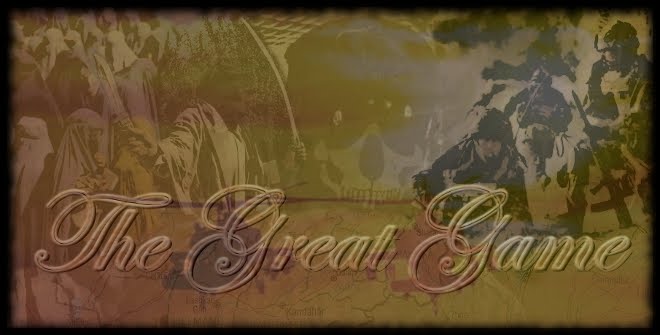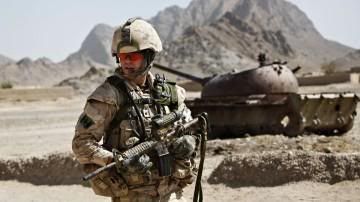The latin root of the word 'Trivia' (as in Trivial Pursuit) is rooted in the three fundamental subjects originally taught in academic centers for hundreds of years. These 'Trivia' (latin for Three Ways' are Rhetoric, Logic and Grammar. Hitherto, policy has not been short of rhetoric and grammar, but the logical development of coherent strategy to combat the root causes of militancy in Afghan society has been obscured by other priorities.
There is nothing wrong with simply engaging a foe wherever he stands, employing Maneuver Warfare to gain decisive tactical advantage in the engagement and hopefully within the theatre. However, failure to address the root cause as to why the foe is deciding to stand (and die) where he does, does little to prevent others from returning and standing in the same place. This is not really a matter for the warriors. Our men and women are performing an admirable job under adverse conditions. What we need now is a different approach, founded on long-term thought, emphasizing sustainability and operations beyond the scope of tactical or operational level engagement.
"The allies tried that between 2005 and 2007 with the Program Takhim-E-Sohl, which encouraged fighters to lay down their weapons in exchange for offers of money and jobs, but the Afghan-led initiative was so rife with corruption the program collapsed and international cash dried up.
Officials say it's time for a better, more stringent national program to lure moderate Taliban away from the more hard-core elements of the insurgency.(4)
There are elements in western government who question the potential the mission has for success. This is propelled largely by the seemingly ineffective approach by Coalition forces to stem the rising tide of violence and the widespread proliferation if improvised explosive devices, which have claimed hundreds of personnel. The insidious nature of the Taliban's IED tactics are such that schools specifically for the purposes of training individuals in the construction and deployment of these lethal pyrotechnics have sprung up both within Afghanistan and across the border in Pakistan.(5)
“...they are not just springing up fully formed, spontaneously. If you are going to lay an IED that defeats the ability of Canadian, British and American troops to detect it, you have been trained by a bomb-maker at a bomb-making school and those schools, to a very large extent are still outside of Afghanistan in the sanctuary of Pakistan,” (6)
This necessitates by default a 'widening' of the scope of the mission in the short term, and increased coordination between Afghan, Coalition and Pakistani Military and Security personnel who are dedicated to combating the insurgency. Since these individuals constructing and detonating IEDs have been formally trained in this aptitude, it is not unfeasible to consider that they could be retrained into a number of other mechanically skilled professions. It is the ability of Coalition forces to lay the groundwork for and effectively implement programs in Afghan society dedicated to creating and maintaining sustainable employment that will inevitably turn the tide of the war.(7)
People as a general rule speak the language of politics and bloodshed only so long as they do not have the necessities of life, food, community, employment and others.
Those who possess and employ arms and tactics seldom continue doing so when offered things like permanent employment, higher education, government jobs. I'll call that the 'pension effect'. Hitherto the drive in Afghan militancy has been to possess arms, exert power and maybe one day come away with enough in arms, equipment or drugs of salable value to 'retire' and either leave the country or hire henchmen. It is these ambitions (along with the religious and cultural values) which have been responsible for swelling the ranks of the insurgency with landless farmers and the uneducated peasantry.
The unfortunate case with Afghanistan is that there is no potential for returning to a status quo ante bellum, because decades of perpetual conflict both internal and against various imperial occupations has left the nation one of the most fragmented on the planet. However, by offering a viable alternative to these disenfranchised individuals, the coalition and Afghan Government can greatly reduce the support from the insurgency. They can eliminate support from moderates driven to militancy by desperation which will leave only the truly 'hard line' supporters of the violent, antisocial ideology.
One of the other major concessions is that NATO strategists are legitimately discussing whether or not it would be better to have elders in the districts function as both municipal leaders and a sort of self-sufficient judiciary. While this does leave policy analysts with questions about the return of internecine conflict between tribal groups and ethnic populations, it certainly seems to be what the Afghan people themselves desire.(8)
"At the same time, the countries are discussing the idea of empowering local district councils to, among other things, mediate disputes - much the same way they did for centuries before the Soviet occupation upended the social order.
Much of the appeal of the Taliban, especially in rural areas, can be found in their ability to swiftly - sometimes brutally - arbitrate disputes among residents as opposed to the muddled Western-based national justice system."(9)
These transitions are not intended occur on a short timeline. This strategic policy will doubtless undergo countless revisions before the NATO countries participating in the Coalition arrive at a coherent and unanimous accord. More than likely, the winter months will be a flurry of political activity as each nation inspects the scope of its own contribution and high-level talks continue aimed at creating a stable future for the nation of Afghanistan.
"The new strategy could be rolled out by next spring, just before the annual fighting season..."(10)
Sources:
The Operational Art: Canadian Perspectives: Concepts and Context (pub. 2005)
The Canadian Press
.jpg)

This article was actually quite a lot of fun to write.
ReplyDelete